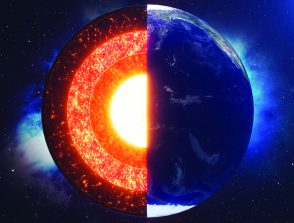Single sample molecular chronology
03/07/2025
IPGP - Îlot Cuvier
13:00
Séminaires Géochimie
Salle 310
Eric Lichtfouse
Issues of climate change, carbon neutrality, pollution-induced diseases, and safe food are linked to the behavior of the ‘sponge’ of natural organic matter and associated pollutants found in waters, aerosols, soils, sediments and living organisms. In particular, we hardly know when a substance, e.g. a pollutant, has entered this sponge; how much time it will stay, when it will be released in water, and when it will induce a disease, e. g. a cancer. Moreover, a single sample, e.g. a sediment or a living organism, is commonly considered as containing substances of the same age. However, empirical observations such as resurrection of pesticides [1] and the presence of bound substances in natural organic matter [2], suggest that a single sample should contain substances of different ages, yet methods to study the history of molecules in complex organic matter were lacking. Here I present single sample molecular chronology [3], a method that studies temporal pools of molecular compounds in natural organic matter. The discovery of several temporal pools of plant waxes in a single soil sample using molecular clocks opens a new field of molecular chronology where a single sample is not viewed anymore as a mono-temporal sample, but as a full record of historical events with possible future applications in biological, geological and environmental sciences.





